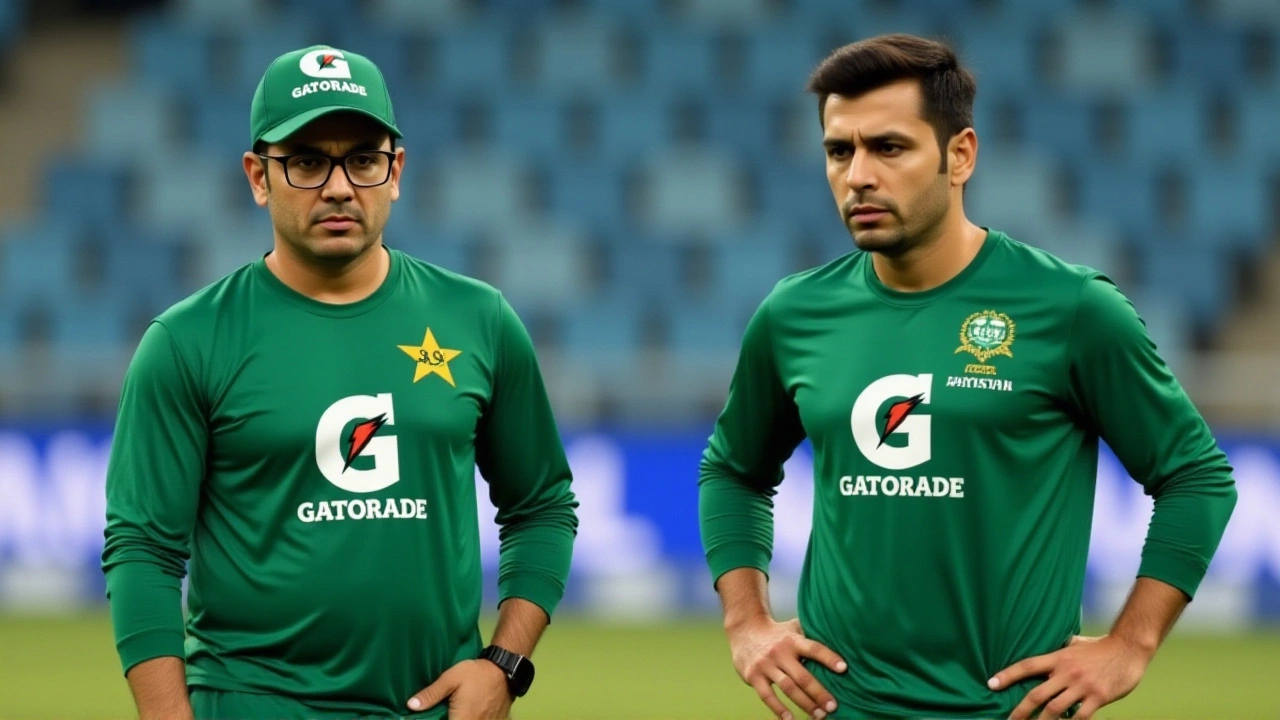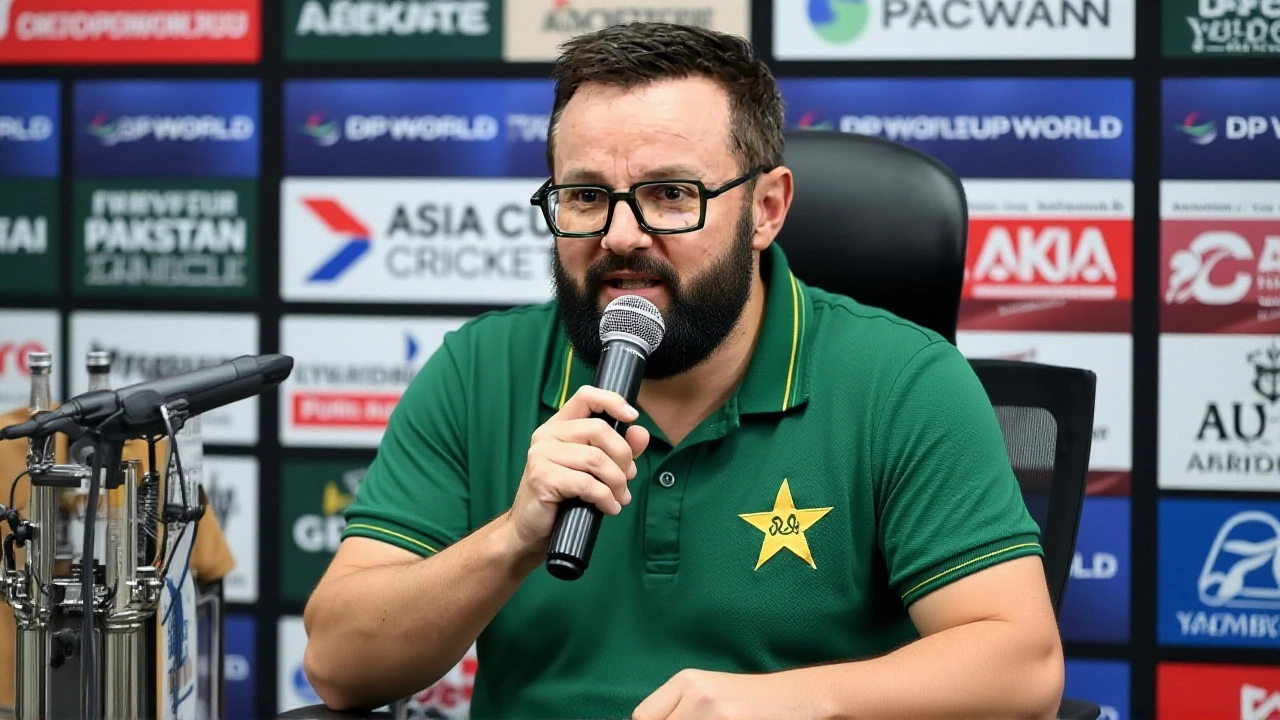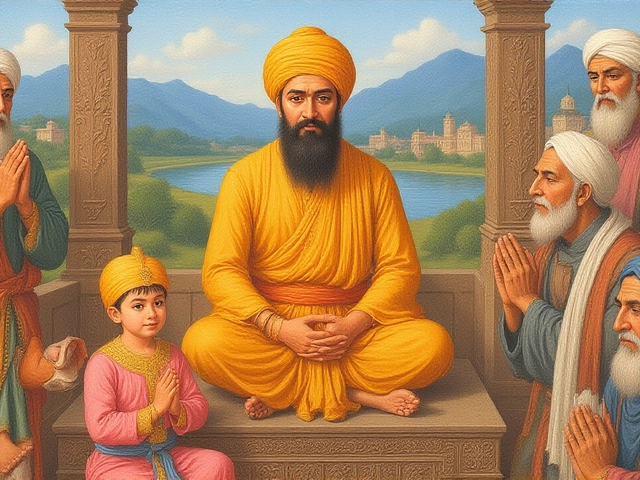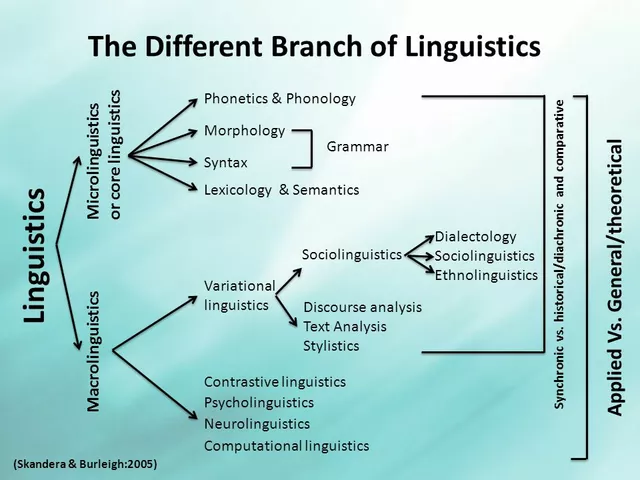Mike Hesson urges Pakistan to stay focused for Asia Cup Final vs India

- Everett Marsden
- 29 September 2025
- 0 Comments
When Mike Hesson, head coach of Pakistan Cricket Board stepped onto the podium at the DP World Asia Cup press centre on September 27, 2025, the buzz in the room was unmistakable – Pakistan were about to play India in the tournament’s first final featuring the two arch‑rivals in 41 years. The match, slated for September 29 at the R. Premadasa Stadium in Colombo, Sri Lanka, carried more than just a trophy; it carried decades of political and sporting rivalry.
Why the final mattered beyond the boundary ropes
Fans in Karachi, Lahore and Delhi alike were glued to their screens not merely for runs and wickets but for a symbolic showdown. The Asia Cup 2025 had been marketed by sponsors as a celebration of South Asian cricketing talent, yet the India‑Pakistan narrative inevitably stole the headlines. For Pakistan, reaching the final marked a resurgence after a decade‑long drought of major tournament finals, and Hesson’s appointment in May was hailed as a turning point.
Mike Hesson’s brief but eventful tenure
Born on October 30, 1974, the New Zealand‑born coach arrived with a résumé that reads like a coach’s highlight reel. He led the New Zealand side to the 2015 World Cup final, later guided Islamabad United to the 2024 Pakistan Super League crown, and has a reputation for demanding discipline. After signing a three‑year contract with the PCB on May 13, 2025, Hesson’s first major test was the Asia Cup.
During the pre‑final press conference, Hesson was asked whether the political weight of an India‑Pakistan final could distract his players. He replied, “My message is simple – focus on cricket. The pressure will be there, but we don’t chase headlines, we chase runs.” He emphasized that the team’s preparation had centered on “sustained pressure in the powerplay and finishing the death overs solidly.”
Strategic insights from the earlier group clash
Pakistan’s earlier group‑stage duel with India ended in a narrow loss, a game Hesson dissected after the match on September 25. “We were a bit passive at the start, letting India set the tone,” he said. “When we fought back, Abashek Sharma’s blistering 78 turned the tide. It showed us that we need to apply pressure for longer stretches, not just a few overs.”
He highlighted three tactical points:
- Maintain a tight line in the first six overs to curb India’s powerplay batting.
- Use our spin quartet to break partnerships during the middle overs.
- Finish the innings with a clear plan for the last ten overs, ensuring wickets aren’t lost in a frenzy.
Reactions from the cricketing world
The tournament’s climax sparked a flurry of commentary. Former Pakistan fast bowler Shoaib Akhtar erupted on social media, branding Hesson’s approach “senseless” and lambasting captain Babar Azam for “caving under pressure.” Akhtar’s outburst underscored the feverish expectations that accompany any Pakistan‑India clash.
Conversely, cricket analyst Harsha Bhogle praised Hesson’s calm demeanor, noting that “the coach asked his side to be ruthless, not reckless – a fine line in limited‑overs cricket.”
Match day: a tale of two innings
On September 29, the R. Premadasa Stadium was awash with flags, chants and the palpable tension of a rivalry that transcends sport. India won the toss, elected to bat, and posted a formidable 286/7, propelled by a century from Virat Kohli and a quick‑fire 78 from Abashek Sharma. Pakistan’s chase faltered at 254/9, falling short by 32 runs.
Post‑match, Hesson admitted “we didn’t sustain the pressure long enough; the Indian bowlers capitalised on those moments.” He praised the bowlers’ spell in the powerplay but conceded that the middle‑order collapse was the difference.
What the defeat means for Pakistan cricket
While the loss stung, reaching the final was a milestone. The PCB’s CEO Zafar Abbas issued a statement: “We are proud of the team’s performance. The final has rekindled belief among our fans and will serve as a platform for future success.”
Analysts predict that the experience will feed into Pakistan’s preparations for the 2026 ICC World Cup. Hesson, who is still early in his Pakistani tenure, is expected to stay on, focusing on “building a batting unit that can chase anything and a bowling attack that can strike early.”
Key Facts
- Event: DP World Asia Cup 2025 (final on 2025-09-29)
- Venue: R. Premadasa Stadium, Colombo, Sri Lanka
- Result: India defeated Pakistan by 32 runs
- Coach: Mike Hesson, head coach of Pakistan Cricket Board
- Controversy: Former fast bowler Shoaib Akhtar criticised Hesson’s tactics after the final
Looking ahead
The next big test for Hesson and his side will be the home series against England in early 2026, where the lessons from Colombo are expected to be put to the test. If Pakistan can translate the pressure‑application philosophy into consistent performances, the gap between them and the world’s top side could narrow.

Frequently Asked Questions
How does the Asia Cup final loss affect Pakistan’s World Cup chances?
The defeat highlights specific shortcomings – notably sustaining pressure in the middle overs. Coaching staff say the experience will inform squad selection and game plans for the 2026 ICC World Cup, where Pakistan will need a more aggressive batting approach to compete with top‑ranked teams.
What were the main tactical changes Hesson suggested before the final?
Hesson urged the bowlers to extend their powerplay pressure beyond the first six overs and asked the batting line‑up to focus on rotating the strike while targeting specific bowlers with aggressive shots, aiming to keep India under constant duress throughout the innings.
Why did former bowler Shoaib Akhtar criticize Hesson’s coaching?
Akhtar felt Hesson’s game plan was too cautious, arguing that the team failed to attack India’s weak spots early enough. His comments reflected the high expectations of Pakistani fans, who often demand an attacking style in big matches.
Who were the standout performers for Pakistan in the final?
All-rounder Shadab Khan took two crucial wickets and scored a quick‑fire 34 runs, while fast bowler Shaheen Afridi claimed three wickets, keeping India’s chase in check for a spell.
When and where will Pakistan next host a major international series?
Pakistan is scheduled to host England for a three‑match ODI series in February 2026, providing a platform for the team to implement the lessons learned from the Asia Cup final and to test Hesson’s revised strategies.


